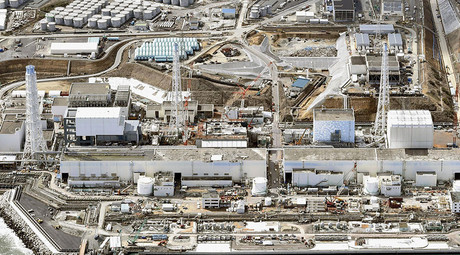Fukushima protective groundwater wall ‘slightly leaning’

Tokyo Electric Power Company inspection discovered that pressure from the flow of groundwater has tilted the wall some 20cm towards the sea, Japan’s largest broadcasting organization NHK World reported.
TEPCO however remains optimistic and has said that the slight lean does not affect the wall’s ability to block radioactive water. The operator is now reinforcing the wall with steel pillars.
Inspection into the construction was completed in late October and also discovered cracks along the perimeter of the wall in the embankment’s pavement. Officials have blamed rising groundwater levels for the cracks – and keep repairing them to make sure that rain does not increase the groundwater levels even further.
The 780-meter coastal wall along the damaged reactor of the Fukushima No. 1 nuclear power plant was built to stifle the flow of tainted water into the sea from 400 tons to 10 tons a day.
The “impermeable” barrier has an underground section that reaches 30 meters deep. TEPCO officials have claimed that such a structure should reduce the amount of radioactive cesium and strontium flowing into the sea to one fortieth of previous levels, while the tritium levels should be reduced to one-fifteenth.
A magnitude 9 earthquake triggered a tsunami that struck Fukushima on March 11, 2011. The disaster caused a triple meltdown at the nuclear plant, where so far almost 45,000 workers have been involved in a clean-up and decommissioning effort that is expected to cost billions of dollars and take at least 40 years.
